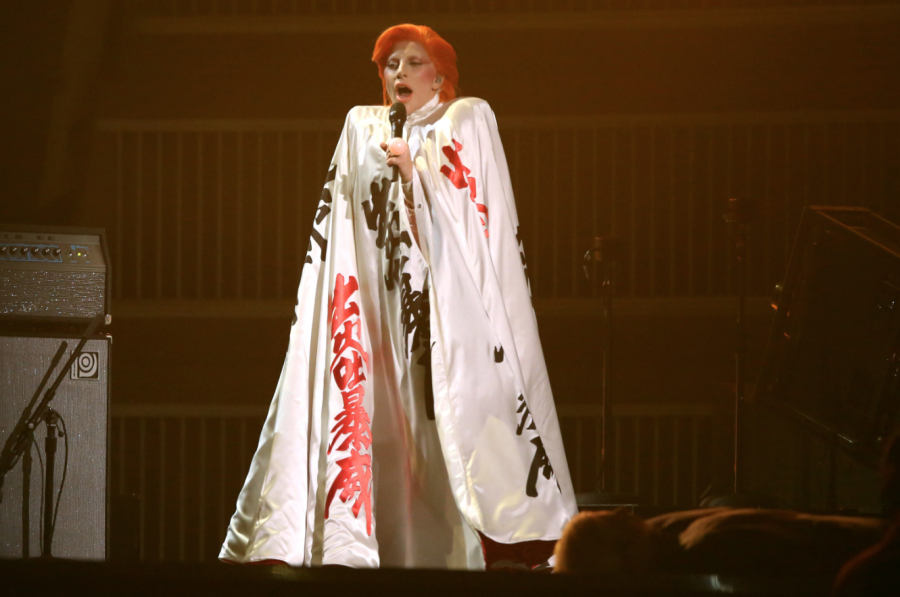This year’s Grammy Awards showcased a mix of the old and new. The evening saw tributes to industry legends David Bowie and Maurice White, alongside performances and widespread success by relative newcomers Kendrick Lamar and the Weeknd.
Earlier on Monday, Nicholas Morgan, a resident of the UI Arts Living-Learning Community, noted the difference in the year’s nominee field.
“I think it’s going to be a battle between those two main sides,” Morgan said. “A lot of the people who would typically listen to Weeknd or Taylor Swift are starting to drift indie.”
The night’s biggest winner was arguably Lamar, who picked up awards in each of the rap categories (song, performance, rap/sung collaboration, and album of the year) along with a collaborative win with Swift for Best Music Video.
In perhaps the most contentious award of the night, Lamar’s To Pimp A Butterfly lost out on the Album of the Year to Swift’s 1989.
Despite the blow, Lamar delivered a politically charged performance, beginning in chains and prison garb and incorporating some traditional tribal wear.
Steven Horowitz, a University of Iowa adjunct assistant professor who teaches a course on American popular music, is often skeptical about the Grammys.
“The Grammys are often way off the mark,” he said. “This year, it’s going to be hard for anyone to beat Taylor Swift, I have to admit. She’s had, I think, something like seven hits off 1989. It’s going to be hard to deny her Album of the Year. And there’s nothing wrong with that. This is meant to be something from the industry, not the critics.”
Horowitz brought to light an interesting aspect of the Grammys, illuminating a schism between artists who garner critical acclaim and those who achieve popular success. Today, there isn’t an artist able to unify the critics with the industry heads.
“We don’t have a Michael Jackson right now,” Horowitz said.
Some industry insiders believe the Weeknd, who has drawn repeated comparisons with the King of Pop, could potentially assume something resembling that position in coming years, although he surely won’t achieve the sheer cultural impact Jackson did.
One notable aspect of this year’s Grammys, especially in relation to its filmic counterpart, the Oscars, is the diversity of the nominees and winners.
“They have a nice wide diversity of artists this year because there haven’t been any big hits, with the exception of Taylor,” Horowitz said.
The night featured touching tributes to many of the industry’s greats, including David Bowie (from Lady Gaga), Maurice White, Lionel Richie, B.B. King, and Eagles veteran Glenn Frey.
Richie’s somewhat random-seeming tribute included performances by John Legend, Demi Lovato, Meghan Trainor, Luke Bryan, and Richie himself.
A refreshingly playful Stevie Wonder headed the tribute for White, the bandleader of Earth Wind and Fire.
“We need to make everything accessible to everyone with disabilities,” Wonder said when presenting, in braille, Song of the Year to Ed Sheeran for “Thinking Out Loud.”
Here are the winners of the night’s major awards categories:
Album of the Year: 1989, Taylor Swift
Record of the Year: “Uptown Funk,” Mark Ronson featuring Bruno Mars



